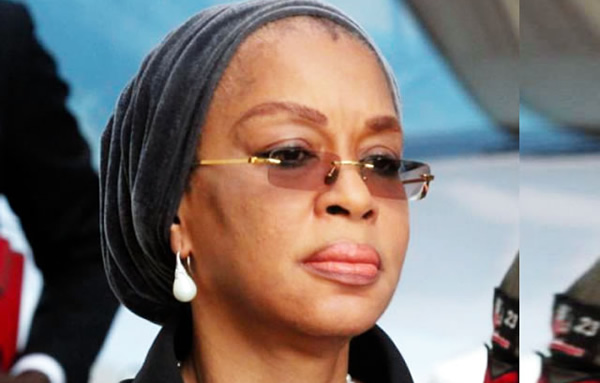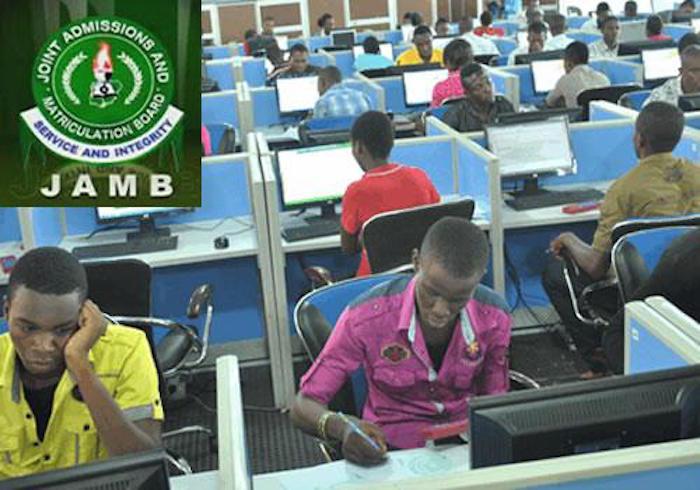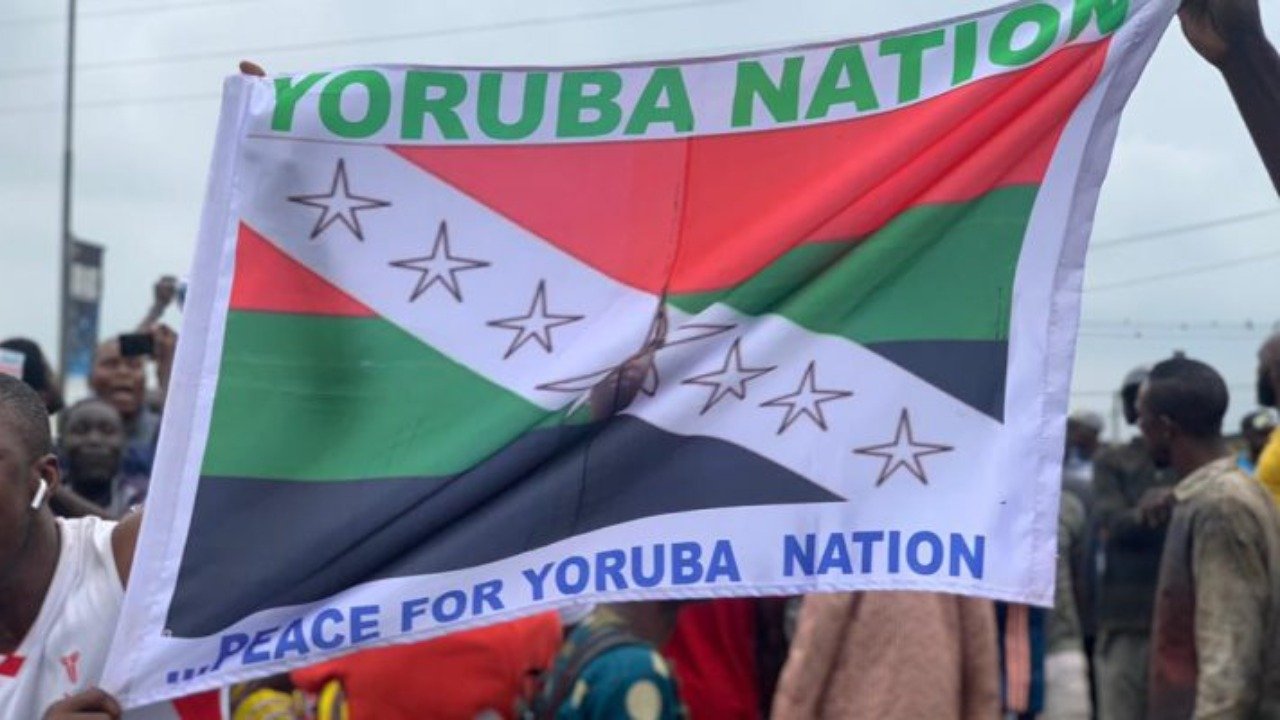By Chief Mike Ozekhome, SAN, CON, OFR, FCIARB, Ph.D, LL.D.
INTRODUCTION
News that the National Judicial Council (NJC) – the nation’s judicial regulatory agency – has reversed its earlier suspension ( on corruption charges ), of Hon. Justice Rita Ofili-Ajumogobia and re-instated her as a judge of the Federal High Court, has elicited mostly positive – even if muted – responses from a large section of the society, particularly stakeholders in the justice – delivery sector. So far, the apparent lone voice of dissent appears to be that of a Civil Society Organization ( CSO ) – the Access to Justice (or A2J for short). Let me clearly state here that A2J is one of the few credible CSOs still available in the country, many others having become nothing but mere merchantilistic money-guzzling and international donor- recipients, who merely look the other way even as the nation is being brazenly and rapaciously stripped bare by her minders, of what remains of her respect, dignity and claims to nationhood. Like the Egyptian Nero, the 5th Roman Emperor – (AD 54 – AD 68), a man who was notorious for his treachery and debauchery, they “fiddled while Rome burned”.
This is why I was surprised to read a press release, titled (rather most unkindly): “A brutal agonizing stab on the soul and body of Nigeria’s Judiciary”, made by A2J. The respected organization in the said statement frowned at NJC’s action in reinstating Justice Ajumogobia, a refreshingly welcome act, which it described as “unfortunate”; given what it called, “serious and damning accusations against Justice Ajumogobia”. In its opinion, NJC’s decision “will cast a long and dark shadow over the Judiciary for a long time to come and amplify questions whether the Nigerian Judiciary can continue to legitimately exercise judicial power”. The CSO therefore called on the NJC to immediately reverse its decision to reinstate Justice Ajumogobia. No. It is the other way round. The NJC should be commended and accorded plaudits and encomiums for this uncommon act of observance of due process and the rule of law.
BACKGROUND FACTS
To enable us have a full grasp and understanding of the depth and breadth of the circumstances surrounding the NJC’s overdue decision, it is necessary to put forward and review Justice Ajumogobia’s painful and agonizing travails over the years. Her Lordship was first dragged before Hon. Justice Hakeem Oshodi of the High Court of Lagos State on 28th November, 2016, ( over six years ago),alongside a Senior Advocate of Nigeria, Chief Godwin Obla.
They were arraigned on 30 counts, in which the latter was accused of offering Justice Ajumogobia the sum of N5 million as gratification allegedly to influence her decision in a Suit marked FHC/L/C/482c/2010. Furthermore, Justice Ajumogibia was accused of receiving the sum of $793,800 in several tranches from different sources between 2012 and 2015 “so as to have a significant increase in your assets that you cannot reasonably explain the increase in relation to your lawful income.” That trial went nowhere and Justice Ajumogobia was reprieved after she was discharged.
Not satisfied, however, the EFCC re-arraigned her before Hon. Justice Ambrose Lewis-Allagoa of the Federal High Court, who in a ruling delivered on the 19th day of November, 2021, brought her ordeal to an end, as the court accepted her counsel’s application and quashed all the 18 counts against her, which had alledged unlawful enrichment, bribery and money laundering. In the words of the court: “An order is hereby granted striking out or quashing the charge against the applicant in its entirety for being incompetent and this court lacks the jurisdiction to try same.” If the public thought that the ruling had far-reaching implications for the Judiciary in terms of obedience to court orders, more hair-splitting was to arise as to how the learned trial Judge arrived at his judgement.
The answer lies in a subsequent judgement delivered by the Court of Appeal on the 11th of December, 2017, in the case of FRN vs Hon. Justice Nganjiwa. The court in that case held that a serving Judge cannot be prosecuted by the EFCC or any prosecutorial agency unless the Judge had first been probed by the NJC, found guilty and dismissed. Justice Obaseki-Adejumo, JCA, who delivered the lead judgement which was unanimously endorsed by other members of the panel, declared that “the NJC is the sole body empowered by the Constitution to determine allegations of misconduct against judicial officers even on criminal allegations of bribery and corruption made against them”.
Continuing, the intermediate court held that “NJC is created by the Constitution to solely regulate affairs of the appointed judicial officer without interference from any authority, and that it is only when the NJC has given a verdict and handed over such judicial officer (removing his toga of judicial powers) to the prosecuting authority that he may then be investigated and prosecuted by the appropriate security agencies”. This judgement was subsequently affirmed by the Supreme Court earlier this year on 27th May, 2022.
It was against this background that Hon. Justice Allagoa, upon being presented with the true and correct position of the law, discharged and acquitted Justice Ajumogobia, on the 21st day of November, 2021, as aforesaid. Pray, where is Ajumogobia’s fault in any of these? Is she to blame for seeking justice through the constitutionally – guaranteed medium, having her day in court and prevailing in hotly contested cases that dragged her name in the mud for over six years? Must she be persecuted for being successful and coming out triumphant against all odds – the serial attempts to truncate her illustrious judicial career, prematurely? Must NJC be unfairly lampooned for obeying court orders and refusing to appeal same after discovering its earlier error in hastily terminating her appointment? Is the NJC a court of law with supervisory jurisdiction over courts of law? The answers to these posers are too obvious to admit of any sophistry or Baba Sala’s Kerikeri histrionics. This conveniently takes us to the next question, which is:
IS ACCESS TO JUSTICE RIGHT IN ITS OPINION?
This question is legitimate because, even though opinion is free, it must, however, be expressed responsibly, with due regard to the facts of each case and the rights of other persons; and – in the peculiar circumstances of this case – the observance of the rule of law, equity, fairness, justice and respect for citizens’ fundamental rights. Yes, A2J has a right to its opinion on the re-instatement of Justice Ajumogobia; but is that opinion correct? Is Ajumogobia’s case of reinstatement to her duties unique, uncharted, or unusual? Is there anything to suggest that NJC’s decision was motivated by any untoward considerations? Was it actuated by inappropriate motives such as a desire “to protect one of its own”, seemingly at all cost? Was the decision, all things considered, in the public interest? Is it fair for Access to Justice to have jumped to the conclusion that it was not? Was Justice Ajumogobia’s case special? Is it unprecedented? Why should she – as the Organization suggests – remain suspended and traumatised indefinitely for over a year (since November, 19, 2021),even after the Federal High Court had quashed the charges for which she was indicted in the first place? Is law an instrument of oppression? Is it no longer an instrument of social engineering as Prof Dean Roscoe Pound once propounded?
AJUMOGOBIA NOT AN ISOLATED CASE
These questions are pertinent because not only was Justice Ajumogobia in ‘judicial limbo’ for well over six years (since November, 28, 2016, when she was first arraigned), hers was certainly not an isolated case. A host of judicial officers who were similarly indicted and charged to court for alleged corrupt practices and unjust enrichment by the EFCC, the Code of Conduct Bureau and the office of the Attorney-General of the Federation, had since been reprieved, with some of them fully restored or reinstated to their various posts and positions in the judiciary.
Some of these Jurists include, but not limited to, late Hon Justice Sylvester Ngwuta, JSC,of the Supreme Court; and Hon. Justice Adeniyi Ademola( rtd) of the FHC; Hon. Justice Hyeladzira Nganjiwa ( FHC); and Hon.Justice Agbadu Fishim ( NICN). All the charges against them were quashed and dismissed for incompetence; and all of them were reinstated as judicial officers by the NJC. The only curious exceptions were Hon Justices Agbadun Fishin and Gladys Ololtu ( FHC ), whose secured victories from courts of competent jurisdictions were surprisingly appealed by the NJC, a judicial organ that ought ordinarily to protect the dignity of the courts and to bow to superior decisions of such courts of law that delivered judgements after full-blown trials and hearings duly witnessed by members of the public. Justice Ngwuta later resumed his duties fully at the Supreme Court. I had the opportunity to appear before him in some cases before he transited.Not few Nigerians believe that his subsequent death not long after his reinstatement to the apex court was occasioned by the humiliation,mental trauma,agonizing ordeal and psychological depression that attended his state – sponsored persecution. Hon Justice Ademola honourably retired from judicial service after his reinstatement. Continuing in service to an apparently ungrateful and lynching country was no longer necessary. Do you blame him? Former CJN, Walter Onoghen, was literally humiliated,intimidated, harassed, hunted, and finally hounded out of the apex court through a mere ex parte order instigated by an intemperate Executive that bayed for his juristic blood.So, why and how is Justice Ajumogobia’s case different,having won her case? Yet, some other Judges were merely investigated and never charged to court at all. Why? That is the question which Access to Justice should seek answers to. For example, the unfair case of Hon.Justice Nnamdi Dimgba cries to high heavens here.The house of the cerebral and intellectually – grounded Scholar-Jurist was crudely attacked, broken into and ransacked by hooded SSS operatives who pulled down doors and windows. Nothing incriminating was ever found on him. But, did the government deem it fit,decent and noble to apologise to him; to balm his bruised ego ? No. Has this government ever realized what harm and mental torture are thereby inflicted and etched forever in the psyche of such innocent citizens whose houses were brutally invaded, viet armies, and with them and their families brazenly subjected to intimidation, coercion, fear and humiliation?
THE UNFAIR CRITICISM
In castigating the NJC for reinstating Justice Ajumogobia, Access to Justice (which has undoubtedly made its mark as a credible Civil Society Organisation over the years), unfortunately terribly missed the mark this time around. This is because, without proffering any convincing logical, moral, legal or constitutional arguments for impugning Justice Ajumogobia’s reinstatement following her exoneration by various courts of law, A2J came across in its press release, as less-than-professional (with all due respect); and motivated by less than altruistic considerations. Perhaps, one of the very few instances,though.
THE CONSTITUTIONAL REGIME
For the avoidance of doubt, any criticism of Ajumogobia’s reinstatement can only be accommodated and must be located within the precincts and four corners of the clear provisions of sections 6,153(1)(i),158,292(1) and Paragraph 21(b) of the Third Schedule to the 1999 Constitution, which clearly spell out the plenitude and amplitude of the functions of the NJC –and no more. Anything short of that would be unconstitutional. Yes, corruption is bad; and judicial corruption is even worse – infact, more deadly and cancerous. I once described corruption,on 12th September, 2013 ( after my release from my three week excruciating ordeal in the hands of kidnappers),as the 37th State of Nigeria,which I described as the wealthiest and most powerful. I had therefore theorized, and I still maintain my theory, that we must kill corruption before corruption kills us all. But, in fighting corruption, we must do so within the realm of decency, with respect to citizens’ rights and observance of the rule of law and due process.Fighting corruption with corrupt, unorthodox or unconscionable means is a worse form of corruption. Thus, to condemn a Ajumogobia’s reinstatement to her position from which she was wrongly and unconstitutionally removed in the first place, so as to perpetually subject her to the asphyxiating and hanging Sword of Damocles, despite having been fully cleared of all charges by courts of competent jurisdiction – as A2J appears to suggest– is simply most unfair and uncharitable, to put it mildly.
This stance is surprising, given A2J’s pedigree as an organization consisting mostly of legal practitioners. They are, first and foremost, Ministers in the Temple of Justice. They therefore ought to be familiar with the famous aphorism that, “it is better for 10 guilty men (or women) to be set free than for an innocent man or woman (in this case, Justice Ajumogobia) to be convicted”. This is even worse where such conviction is by the court of public opinion that lacks all the necessary facts and the peculiar workings our justice system. Put simply, A2J got it wrong this time around – big time.
CONCLUSION
My humble take on this is that instead of the NJC apologizing for doing the right thing and obeying valid court orders as A2J appears ro suggest, it is the organization that ought to apologise to both the NJC and Justice Ajumogobia, for allowing itself to buy into frenzied ‘mob’ sentiments; the usual government’s ” name-and-shame” mantra; and pedestrian logic in its knee-jerk reaction to NJC’s action, which ought to be applauded by all and sundry.
Justice Ajumogobia has been tried in courts of law,discharged and given a clean bill of health. She has had her day in court. She has been vindicated. Whoever is aggrieved by her well-deserved exoneration and reinstatement should give her – and the NJC – a total break; and move on. The courts have spoken and it is final. Decisions of the NJC are inferior to that of a court of law. That is the extant position under our constitutional dispensation. There is no room for jungle justice, trial by media, sensationalism, hype, or speculation-least of all, from respected senior lawyers that ought to know better.
Beyond this, it remains to be emphasized that the Common law or Anglo-Saxon system of jurisprudence which we operate in Nigeria is accusatorial. It is not the French model, which is inquisitorial. In the accusatorial model, a person is presumed innocent until proven guilty by the State. This has been enacted into section 36 of the 1999 Constitution.This is different from the inquisitorial French model which is inquisitorial; where a defendant is presumed guilty until he proves his innocence. Consequently, to the extent that Hon.Justice Ajumogobia has undergone the full rigours of a trial and came out unscathed, to that extent is it most uncharitable for anyone to suggest, let alone insist, that she should continue to prove her innocence, as it were.
THE WAY FORWARD
The role of the NJC in all this also deserves some commentary. This is because, as a constitutional body, its role should be no more than to dispassionately investigate allegations of misconduct against Judges and, where unproven or disproved, it should unhesitatingly and promptly reinstate such Judges, in the event that they had earlier been interdicted. Under no circumstances should NJC go so far as appealing against a decision of a court of competent jurisdiction which exonerates a judicial officer-as it is currently doing with respect to the cases of Hon.Justice Gladys Olotu and Hon Justice Agbadu-Fishim. This, with all respect, due deference and full humility, is patently wrong. I hereby humbly appeal to the NJC to immediately discontinue and withdraw those appeals. They are as unnecessary as they are persecutory. The NJC should admit to errors and fallibility. It is not God.
The NJC should only indict Judges in the clearest of cases. It should never allow itself to be used or misused, wittingly or unwittingly, by the other arms of Government (particularly,the intolerant and unaccountable Executive), to hound, hunt, or persecute hapless Judges doing their legitimate work. That would be grossly unfair and amounting to a flagrant affront to the Constitution. Those arms of Government should first cleanse and deodorize their stinking Augean stables – where confirmed cases of corruption-on-steroids abound – before turning to the Judiciary – Alexander Hamilton’s weakest of the three arms of government (Federalist Paper No 78 ). This is because, compared to these other arms of government, the Judiciary – as a body – is a Saint occupying mother earth. Please, let Justice Ofili-Ajumogobia, a brilliant and fecund quintessential Jurist, be.

 News6 years ago
News6 years ago
 Featured6 years ago
Featured6 years ago
 Boss Picks6 years ago
Boss Picks6 years ago
 Headline6 years ago
Headline6 years ago
 Headline6 years ago
Headline6 years ago
 Headline5 years ago
Headline5 years ago
 Headline6 years ago
Headline6 years ago
 Headline6 years ago
Headline6 years ago













